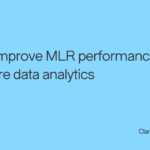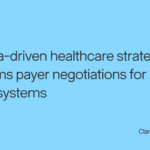Life science and healthcare industry leaders met at the 2021 CNS Summit to reflect on how pharmaceutical companies can leverage analytics and real-world evidence (RWE) to advance inclusion and diversity in clinical trials. A complete understanding of the differences in care, treatments, and outcomes is required to address the lack of diversity in clinical trials effectively. However, having real-world insights is necessary for a comprehensive understanding. Analytics that leverage individual, patient-level social, and behavioral data can help guide evidence-based efforts to improve the inclusion of underrepresented patient populations. A panel moderated by Jean Drouin, MD, CEO of Clarify Health, examined how pharmaceutical companies can leverage social determinants of health (SDoH) data and patient journey insights for community building and enhancing the diversity of clinical trials populations. The life science industry leaders included in the panel were: The prioritization of representative diversity in clinical trials is necessary for better outcomes and effective patient-centered care. Pharmaceutical companies need to help employees and researchers develop their understanding of blind spots and subconscious biases that could impede the participation of underrepresented groups in clinical trials. Clarify’s Dr. Kenneth Park underlined that in addition to insights, recruitment of diverse participants involves honest engagement and an understanding of the historical context that limits participation. “It’s about having those human interactions and being much more honest and upfront about understanding why a patient might not feel comfortable participating. And asking how you give them reassurances to help them have a reason to trust you, given that historically, they may have had pretty good reasons not to.” — Dr. Kenneth Park, Clarify Researchers can better understand how to engage diverse patient populations through patient journey insights that assess diagnosis and treatment patterns across specific patient cohorts. “If we understand the insights and we understand the behaviors, we can rebuild the trust that patients need to have embedded in the way that they manage their patient care.” — Lorena Kuri, Bristol-Myers Squibb Advancing health equity also requires reassessing study design and inclusion criteria of clinical trials, which have historically excluded underserved demographics, such as non-binary identifying patients. Bristol-Myers Squibb’s Kuri noted that sometimes a trial’s eligibility criteria might inadvertently eliminate specific patient populations and demographics, such as transgender patients. “Let’s look into all dimensions of diversity that are not that evident and how binary selection may eliminate some trans patients to get into a prostate cancer trial.” —Lorena Kuri, Bristol-Myers Squibb Laurie Myers stated that part of the solution requires empowering investigators and researchers with inclusive health literacy information that drives better decisions. Merck partnered with health research groups and community partners to increase employees’ cultural awareness and develop health literacy resources. They developed an inclusive health literacy glossary to aid clinical investigators and researchers. In addition, they heightened the diverse and empowering images reflected in their clinical trial materials at both the patient and provider levels. “In 2019, we started requiring training of investigators on cultural sensitivity, as well as health literacy, because we know that unconscious bias and implicit bias can inadvertently deter investigators from offering trials to diverse population” — Laurie Myers, Merck Achieving diversity goals involves data-driven insights together with cultural and inclusive training on the diverse perspectives of patients. “We need to educate existing sites on health literacy, clinical trial literacy, anti-racism, unconscious bias, and inclusive behaviors—the same way that we need to continue building the GCP patient safety advocacy,” — Lorena Kuri, Bristol-Myers Squibb Increasing diversity in clinical trial recruitment needs to be considered at all clinical trial stages, especially during study design and site selection. Leveraging RWE can accelerate diversity by going beyond assessing the historical performance of research sites and investigators. It equips life science teams with analytics, mapping referral patterns across millions of real-world patient journeys. Additionally, RWE that delivers comprehensive social determinants of health insights encompassing gender, race, ethnicity, income level, transportation access, housing stability, education level, and health literacy can be used to assess diversity criteria among eligible patients. Having access to precise and comprehensive SDoH insights and physician referral patterns enables pinpointing of diverse patient cohorts that meet a clinical trial’s eligibility criteria and needs. Precise insights can help lay the foundation for community outreach programs and recruitment for underrepresented communities. “I’m really excited about how we can use real-world data and social determinants of health to identify these communities and identify potential touchpoints. The data gives you a great foundation where to start that engagement.” Dr. Kenneth Park, Clarify For Bristol-Myers Squibb, actionable insights were critical for site selection and ensuring that they increase the U.S. trial sites within diverse communities. Lorena Kuri detailed how real-world insights have been vital for their clinical trial recruitment objectives because it is necessary to select medical centers that offer better access to diverse communities. “Last year in August, Bristol-Myers Squibb committed to assuring that at least 25% of the U.S. sites for trials were located in areas of high diversity.” — Lorena Kuri, Bristol-Myers Squibb Learn how Clarify’s RWE and social determinants of health insights help life science companies advance health equity. Clarify Trials is a cloud-based on-demand analytics product that interrogates 300M+ patient journeys, including 400+ social determinants of health factors for real-world, actionable insights to improve recruitment of underrepresented patient populations.
Boosting awareness about diversity in clinical trials
Leveraging RWE to advance diversity in clinical trials
- Author Details





